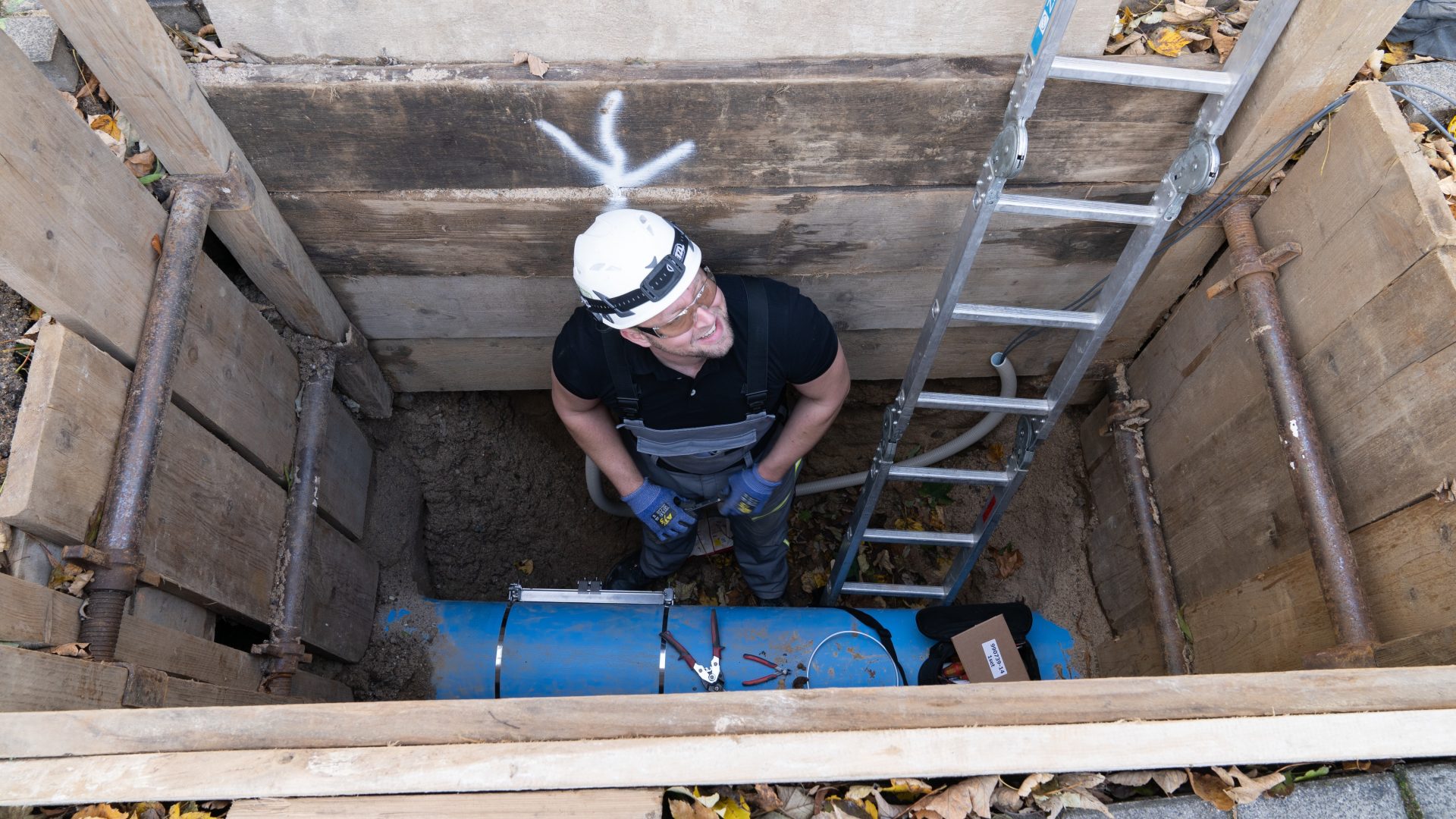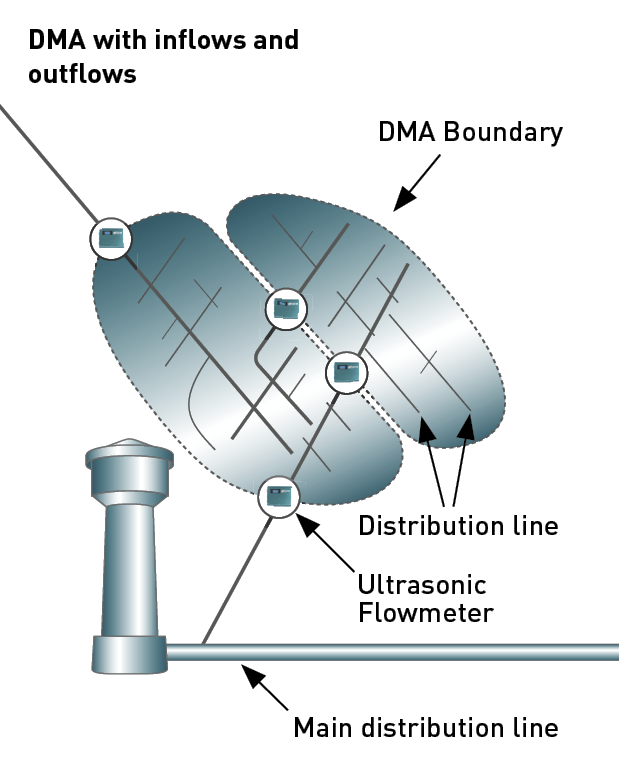A transformative technology in the field of water management, clamp-on ultrasonic flow meters are non-intrusive devices that measure the flow rate of a fluid by using ultrasonic transducers that attach externally to the pipe, without any need to alter the pipe itself.
The meters work by sending ultrasonic pulses through the water, measuring the time it takes for the sound waves to travel with and against the flow, with the difference in these travel times correlating directly to the flow rate. This non-intrusive method offers significant advantages in terms of ease of installation, minimal maintenance, and reduced system downtime.
In the city of Wuppertal, a city recognised for its digital innovation within the Bergisches Städtedreieck region of Germany, the implementation of clamp-on ultrasonic flow meters is part of a broader initiative to enhance urban infrastructure through smart technologies. LoRaWAN, a communication protocol tailored for long-range, low power IoT (Internet of Things) applications, is central to this initiative, linking various components of the city’s infrastructure into a cohesive network.
Challenges in the water network
The Wuppertal water authorities prioritise the prevention of water loss due to the city’s unique geographical and geological challenges. Spanning elevations from 130 meters to 375 meters above sea level, the drinking water network operates under pressures much higher than the national average, which can exacerbate water loss from leaks. The presence of extensive sinkhole zones further complicates these challenges, as leaks can lead to significant erosion and subsidence without timely detection.
Advantages of clamp-on ultrasonic flow meters in leak detection
To combat the issues faced, the water provider has integrated Emerson’s Flexim flow meters into their network. These clamp-on ultrasonic meters are specifically tailored for low-flow detection, critical during the minimal usage hours between 2 and 4 am. There is no minimum flow required for operation, and accurate recording of flow velocities as low as 1 cm/s is possible. This sensitivity is crucial for detecting leaks early and mitigating potential damage and water loss.
Installation and benefits of non-intrusive metering
The installation process of these meters is streamlined, as they do not require any pipeline modification or extensive civil engineering works. This not only reduces installation costs and time, but also minimises disruption to the public and the environment. The devices come equipped with transducers that meet IP68 protection level, allowing them to operate while submerged – further simplifying installation.
The future of water management. Expanding the network and enhancing capabilities
The initial pilot project demonstrated significant success in monitoring with Flexim meters, each equipped with a Modbus to LoRaWAN bridge. This provided swift and easy data transmission, leading to the expansion of the network over twenty additional measuring points. Such a robust integration allows for real-time data monitoring and advanced leak detection capabilities across Wuppertal’s sprawling water network.
Through the deployment of clamp-on ultrasonic flow meters connected via LoRaWAN, Wuppertal is setting a benchmark in smart water management. This approach not only enhances the efficiency and sustainability of urban water services, but also showcases how cutting-edge technology can be harnessed to address complex infrastructure challenges in the most effective way possible.





